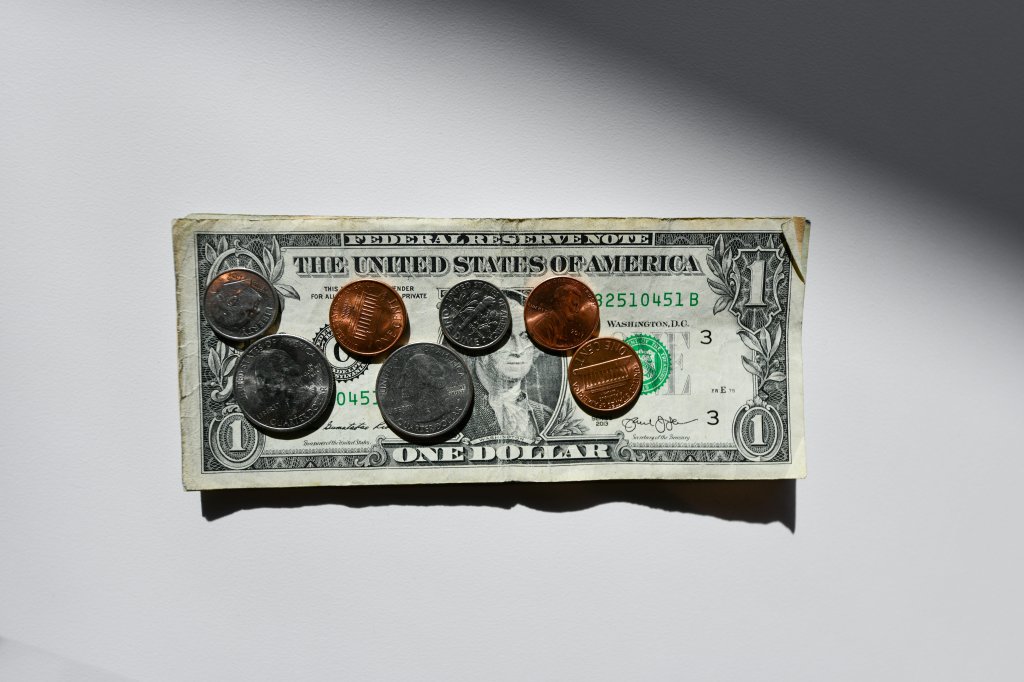This post was originally published on Wait But Why.
Tipping is not about generosity.
Tipping isn’t about gratitude for good service. And tipping certainly isn’t about doing what’s right and fair for your fellow man.
Tipping is about making sure you don’t mess up what you’re supposed to do.
In my case, the story goes like this: In college, I was a waiter at a weird restaurant called Fire and Ice. This is the front page of their website (FYI: those lame word labels are on the site, not added by me):
That sad guy in the back is one of the waiters. He’s sad because he gets no salary and relies on tips like every other waiter, but people undertip him because at this restaurant they get their own food so they think he’s not a real waiter even though he has to bring them all their drinks and side dishes and give them a full tour of the restaurant and tell them how it works like a clown and then bus the table because they have no busboys at the restaurant and just when the last thing he needs is for the managers to be mean and powerful middle-aged women who are mean to him, that’s what also happens.
Bad life experiences aside, the larger point here is that I came out of my time as a waiter as a really good tipper, like all people who have ever worked in a job that involves tipping. And friends of mine would sometimes notice this and say sentences like, “Tim is a really good tipper.”
My ego took a liking to these sentences, and now 10 years later, I’ve positioned myself right in the “good but not ridiculously good tipper” category.
So anytime a tipping situation arises, all I’m thinking is, “What would a good but not ridiculously good tipper do here?”
Sometimes I know exactly what the answer to that question is, and things run smoothly. But other times, I find myself in the dreaded Ambiguous Tipping Situation.
Ambiguous Tipping Situations can lead to a variety of disasters:
1. The Inadvertent Undertip
2. The Inadvertent Overtip
3. The “Shit Am I Supposed To Tip Or Not?” Horror Moment
I don’t want to live this way anymore. So , I decided to do something about it.
I put on my Weird But Earnest Guy Doing a Survey About Something hat and hit the streets, interviewing 123 people working in New York jobs that involve tipping. My interviews included waiters, bartenders, baristas, manicurists, barbers, busboys, bellhops, valets, attendants, cab drivers, restaurant delivery people, and even some people who don’t get tipped but I’m not sure why, like acupuncturists and dental hygienists.
I covered a bunch of different areas in New York, including SoHo, the Lower East Side, Harlem, the Upper East Side, and the Financial District, and I tried to capture a wide range, from the fanciest places to the dive-iest.
About 10% of the interviews ended after seven seconds when people were displeased by my presence and I’d slowly back out of the room, but for the most part, people were happy to talk to me about tipping — how much they received, how often, how it varied among customer demographics, how large a portion of their income tipping made up, etc. And it turns out that service industry workers have a lot to say on the topic.
I supplemented my findings with the help of a bunch of readers who wrote with detailed information about their own experiences and with a large amount of research, especially from the website of Wm. Michael Lynn, a leading tipping expert.
So I know stuff about this now. Here’s what you need to know before you tip someone.
1. The stats.
The most critical step in avoiding Ambiguous Tipping Situations is just knowing what you’re supposed to do. I took all the stats that seem to have a broad consensus on them and put them into this table:
This table nicely fills in key gaps in my previous knowledge. The basic idea with the low/average/high tipping levels used above is that if you’re in the average range, you’re fine and forgotten. If you’re in the low or high range, you’re noticed and remembered. And service workers have memories like elephants.
2. What tipping well (or not well) means for your budget.
Since tipping is such a large part of life, it seems like we should stop to actually understand what being a low, average, or high tipper means for our budget.
Looking at it simply, you can do some quick math and figure out one portion of your budget. For example, maybe you think you have 100 restaurant meals a year at about $25/meal — so according to the above chart, being a low, average, and high restaurant tipper all year will cost you $350 (14% tips), $450 (18% tips), and $550 (22% tips) a year. In this example, it costs a low tipper $100/year to become an average tipper and an average tipper $100/year to become a high tipper.
I got a little more comprehensive and came up with three rough profiles: Low Spender, Mid Spender, and High Spender. These vary both in the frequency of times they go to a restaurant or bar or hotel, etc., and the fanciness of the services they go to — i.e., High Spender goes to fancy restaurants and does so often and Low Spender goes out to eat less often and goes to cheaper places. I did this to cover the extremes and the middle; you’re probably somewhere in between.
3. Other factors that should influence specific tipping decisions.
One thing my interviews made clear is that there’s this whole group of situation-related factors that service industry workers think are super relevant to the amount you should tip — it’s just that customers never got the memo. Most customers have their standard tip amount in mind and don’t really think about it much beyond that.
Here’s what service workers want you to consider when you tip them:
Time matters. Sometimes a bartender cracks open eight bottles of beer, which takes 12 seconds, and sometimes she makes eight multi-ingredient cocktails with olives and a whole umbrella scene on each, which takes four minutes, and those two orders should not be tipped equally, even though they might cost the same amount.
Effort matters. Food delivery guys are undertipped. They’re like a waiter, except your table is on the other side of the city. $2 really isn’t a sufficient tip (and one delivery guy I talked to said 20% of people tip nothing). $3 or $4 is much better. And when it’s storming outside? The delivery guys I talked to all said the tips don’t change in bad weather — that’s not logical. Likewise, while tipping on takeout orders is nice but not necessary, one restaurant manager complained to me about Citibank ordering 35 lunches to go every week, which takes a long time for some waiter to package (with the soup wrapped carefully, coffees rubber-banded, dressings and condiments put in side containers) and never tipping. Effort matters and that deserves a tip.
Their salary matters. It might not make sense that in the U.S. we’ve somewhat arbitrarily deemed certain professions as “tipped professions” whereby the customers are in charge of paying the professional’s salary instead of their employer, but that’s the way it is. And as such, you have some real responsibility when being served by a tipped professional that you don’t have when being served by someone else.
It’s nice to give a coffee barista a tip, but you’re not a horrible person if you don’t because at least they’re getting paid without you. Waiters and bartenders, on the other hand, receive somewhere between $2 and $5/hour (usually closer to $2), and this part of their check usually goes entirely to taxes. Your tips are literally their only income. They also have to “tip out” the other staff, so when you tip a waiter, you’re also tipping the busboy, bartender, and others. For these reasons, it’s never acceptable to tip under 15%, even if you hate the service. The way to handle terrible service is to complain to the manager like you would in a non-tipping situation. You’re not allowed to stiff on the tip and make them work for free.
Service matters. It seems silly to put this in because it seems obvious, and yet, Michael Lynn’s research shows the amount that people tip barely correlates at all to the quality of service they receive. So while stiffing isn’t OK, it’s good to have a range in mind, not a set percentage, since good service should be tipped better than bad service.
I also discovered some other interesting (and weird) findings and facts about tipping.
1. Different demographics absolutely do tip differently
“Do any demographics of people — age, gender, race, nationality, sexual orientation, religion, profession — tend to tip differently than others?” ran away with the “Most Uncomfortable Question to Ask or Answer” award during my interviews, but it yielded some pretty interesting info. I only took seriously a viewpoint I heard at least three times, and in this post, I’m only including those viewpoints that were backed up by my online research and Lynn’s statistical studies.
Here’s the overview, which is a visualization of the results of Lynn’s polling of over 1,000 waiters. Below, each category of customer is placed at their average rating over the 1,000+ waiter surveys in the study:
Fascinating and awkward. Throughout my interviews, I heard a lot of opinions reinforcing what’s on that chart and almost none that contradicted it. The easiest one for people to focus on was foreigners being bad tippers because, first, it’s not really a demographic so it’s less awkward, and second, people could blame it on them “not knowing,” if they didn’t want to be mean. Others, though, scoffed at that, saying, “Oh they know…” As far as foreigners go, the French have the worst reputation.
People also consistently said those who act “entitled” or “fussy” or “like the world’s out to get them” are usually terrible tippers.
On the good-tipping side, people who are vacationing or drunk (or both) tip well, as do “regulars” who get to know the staff, and of course, the group of people everyone agrees are the best tippers are those who also work in the service industry (which, frankly, creeped me out by the end — they’re pretty cultish and weird about how they feel about tipping each other well).
2. Here are six proven ways for waiters to increase their tips:
- Be the opposite gender of your customer
- Introduce yourself by name
- Sit at the table or squat next to it when taking the order
- Touch the customer, in a non-creepy way
- Give the customer candy when you bring the check
Of course those things work. Humans are simple.
3. A few different people said that when a tip is low, they assume the customer is cheap or hurting for money.
But when it’s high, they assume it’s because they did a great job serving the customer or because they’re likable (not that the customer is generous).
4. When a guy tips an attractive female an exorbitant amount, it doesn’t make her think he’s rich or generous or a big shot — it makes her think he’s trying to impress her.
Very transparent and ineffective, but she’s pleased to have the extra money.
5. Don’t put a zero in the tip box if it’s a situation when you’re not tipping — it apparently comes off as mean and unnecessary.
Just leave it blank and write in the total.
6. According to valets and bellhops, when people hand them a tip, they almost always do the “double fold” where they fold the bills in half twice and hand it to them with the numbers facing down so the amount of the tip is hidden.
However, when someone’s giving a really great tip, they usually hand them the bills unfolded and with the amount showing.
7. Some notes about other tipping professions I didn’t mention above:
- Apparently no one tips flight attendants, and if you do, you’ll probably receive free drinks thereafter.
- Golf caddies say that golfers tip better when they play better, but they always tip the best when it’s happening in front of clients.
- Tattoo artists expect $10-20 on a $100 job and $40-60 on a $400 job, but they get nothing from 30% of people.
- A massage therapist expects a $15-20 tip and receives one 95% of the time — about half of a massage therapist’s income is tips.
- A whitewater rafting guide said he always got the best tips after a raft flipped over or something happened where people felt in danger.
- Strippers not only usually receive no salary, they often receive a negative salary, i.e. they need to pay the club a fee in order to work there.
8. According to Lynn, tips in the U.S. add up to over $40 billion each year.
This is more than double NASA’s budget.
9. The U.S. is the most tip-crazed country in the world, but there’s a wide variety of tipping customs in other countries.
Tipping expert Magnus Thor Torfason’s research shows that 31 service professions involve tipping in the U.S. That number is 27 in Canada, 27 in India, 15 in the Netherlands, 5-10 throughout Scandinavia, 4 in Japan, and 0 in Iceland.
10. The amount of tipping in a country tends to correlate with the amount of corruption in the country.
This is true even after controlling for factors like national GDP and crime levels. The theory is that the same norms that encourage tipping end up leaking over into other forms of exchange. The U.S. doesn’t contribute to this general correlation, with relatively low corruption levels.
11. Celebrities should tip well because the person they tip will tell everyone they know about it forever, and everyone they tell will tell everyone they know about it forever.
For example: A friend of mine served Arnold Schwarzenegger and his family at a fancy lunch place in Santa Monica called Cafe Montana. Since he was the governor, they comped him the meal. And he left a $5 bill as the tip. I’ve told that story to a lot of people.
- Celebrities known to tip well (these are the names that come up again and again in articles about this): Johnny Depp, Charles Barkley, David Letterman, Bill Murray, Charlie Sheen, Drew Barrymore
- Celebrities known to tip badly: Tiger Woods, Mariah Carey, LeBron James, Heidi Klum, Bill Cosby, Madonna, Barbara Streisand, Rachael Ray, Sean Penn, Usher
I’ll finish off by saying that digging into this has made it pretty clear that it’s bad to be a bad tipper.
Don’t be a bad tipper.
As far as average versus high, that’s a personal choice and just a matter of where you want to dedicate whatever charity dollars you have to give to the world.
There’s no shame in being an average tipper and saving the generosity for other places, but I’d argue that the $200 or $500 or $1,500 per year it takes (depending on your level of spending) to become a high tipper is a pretty good use of money. Every dollar means a ton in the world of tips.
This post was originally published on Wait But Why, and all photos are used here with permission. Wait But Why posts regularly, and they send each post out by email to over 275,000 people! Enter your email here and they’ll put you on the list (they only send a few emails each month).






























